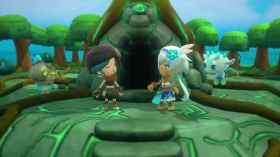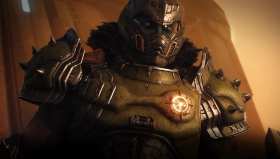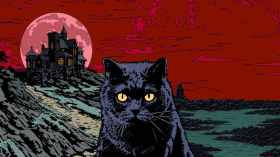‘The future is like a car with no brakes, careening out of control. All I can do is choose which road it goes down.’ I pause for a moment after reading this sentence, lifting my eyes from the screen. I stare off into the distance, seeing nothing because it’s 2am and the room is pitch black, save for the blue light illuminating my face. It’s like the game can read my mind. It knows exactly how I feel: helpless to the passage of time.
Harmony: The Fall of Reverie is a visual novel that heavily relies on player choices, developed by DON’T NOD, the expert storytellers behind Life is Strange and Tell Me Why, among others. It follows Polly, who has returned to her home city of Atina – and the family she fled from ten years ago – after receiving word that her mother has gone missing. A lot has changed since she left, and the situation is worse than she could have imagined – a megacorporation called Mono Konzern (MK) has monopolised all aspects of life in Atina, and now controls it with an iron grip.
While investigating her mother’s bedroom, Polly finds a necklace that transports her to another world called Reverie. Here she becomes Harmony, the Oracle chosen to travel between worlds. Reverie is home to the Aspirations: personifications of human ambitions like Bliss, Power, Bond, Truth, Chaos and Glory. These ancient beings influence life on Brittle – the mortal realm – by sending dreams to its people, thus influencing how they live their lives.
The two planes are closely linked, each reliant on the other to exist. So in order to find her mother and save Atina from MK, Polly needs to help the Aspirations restore the fading heart of Reverie. The fate of both worlds is in her hands.
The strong aesthetic and atmosphere of Harmony’s vibrant, futuristic world deserves immediate recognition – epic animated cutscenes, sweeping location shots and detailed character designs are a feast for the eyes. Paired with an incredible cast of voice actors and an appropriately mysterious soundtrack by Lena Raine (Celeste, Minecraft, and more), the largely written world comes to life.
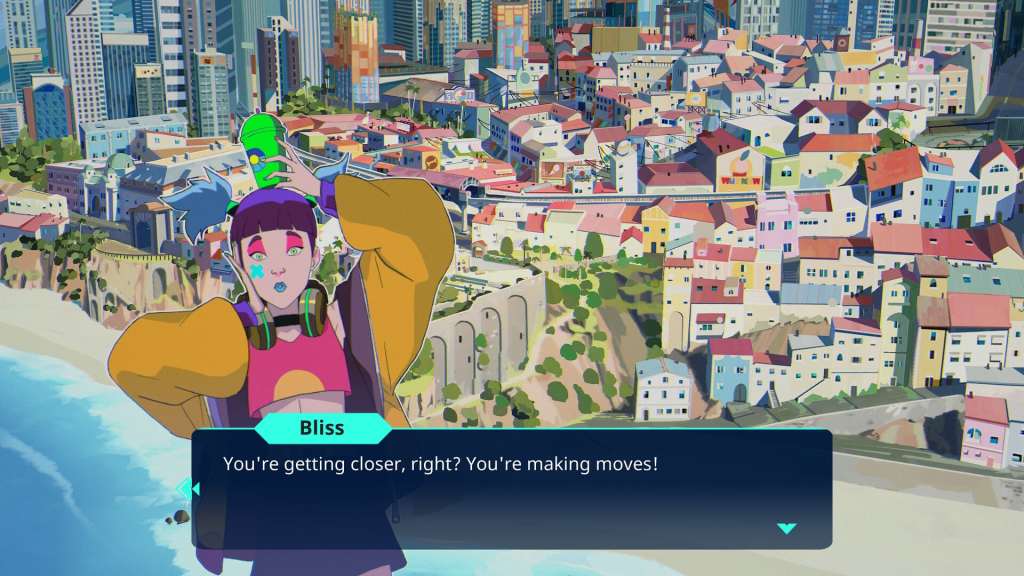
And that writing is exceptional. It’s not surprising when you look at how much experience DON’T NOD has in creating story-rich games, but that depth of narrative and level of choice is tenfold here. There’s an abundance of context and backstory to delve into, characters to converse with, and complicated topics to unpack.
Nothing is off-limits for discussion: complicated family relationships, advancing technology, government surveillance and control, coming of age, gender identity, sexuality, polyamory, consent – the developers have found a way to include discourse around so many topics. Yet it doesn’t feel like anything is forced into the discussion where it doesn’t belong. It makes for an enthralling story because the world doesn’t exist in a vacuum.
Every character is crafted with care, and their relationships with each other are nuanced. Your gateway to understanding them is in the little details; their facial expressions and subtle tells in the voice acting. They read as realistic, complex humans.
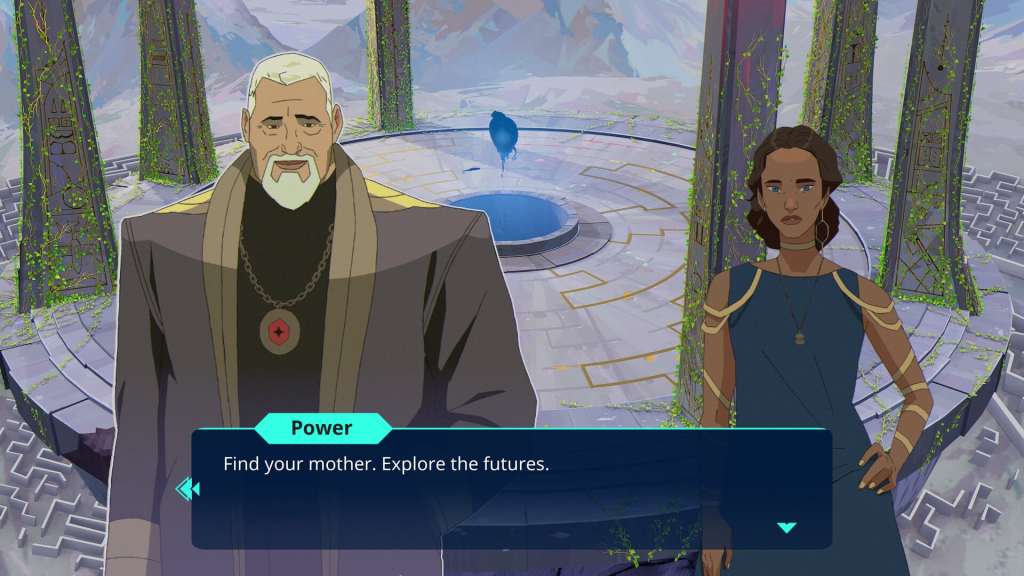
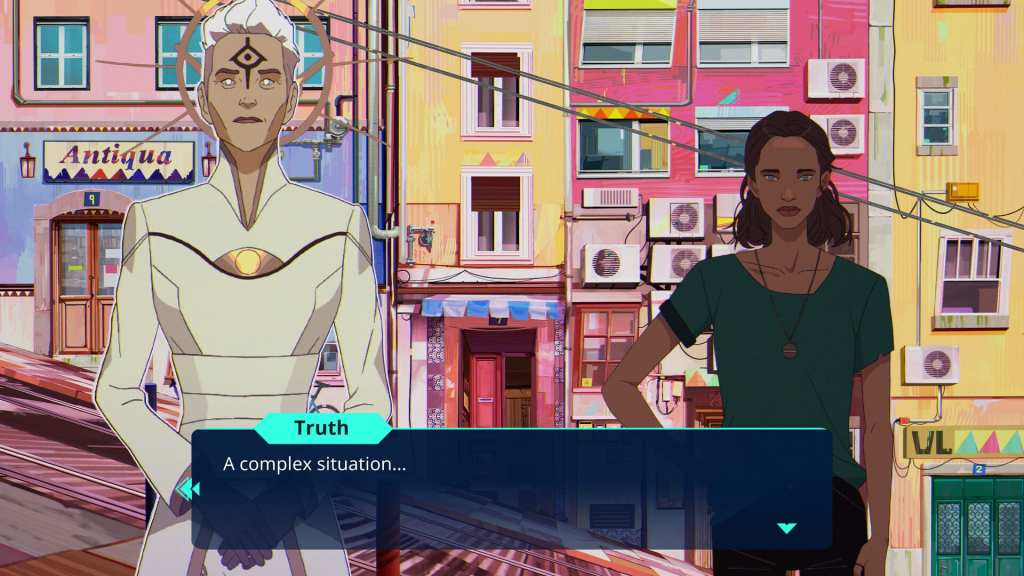
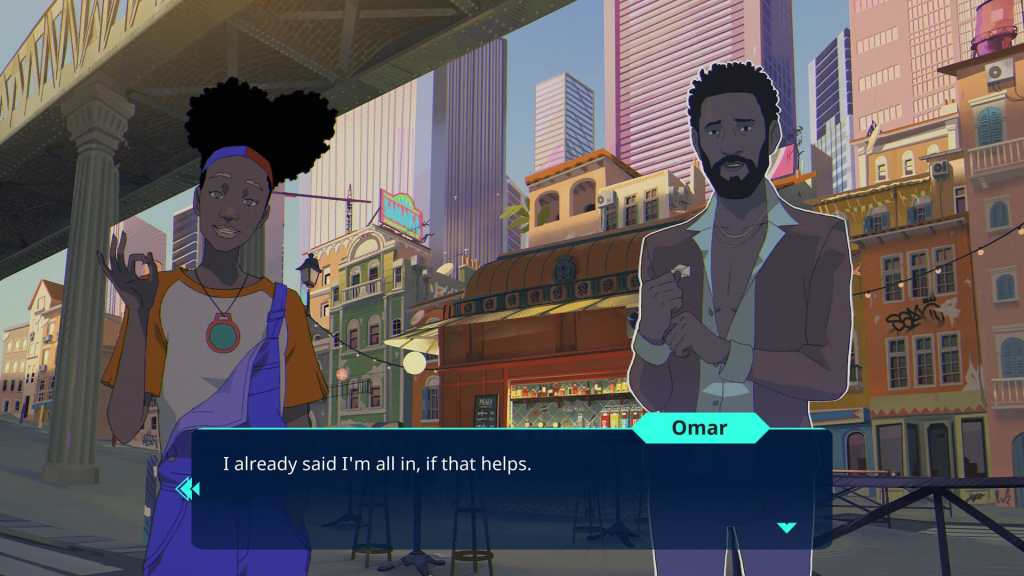
As a result, I found myself drawn into the sub-plots just as much as the high-stakes main story. I felt so invested in the characters that I was reacting to situations in the same ways that I would in real life. A secret crush? Excitement buzzed through my body and I leaned closer to the screen: tell me everything. Polly needed to face the realities of her difficult relationship with her mother? A wave of discomfort washed over me and my guard was up in an instant: don’t show too much emotion, that can be used against you. It felt as if the game was holding up a mirror, forcing me to think about the relationships in my own life through the lens of Polly and her distant yet familiar world.
The defining factor in how the story plays out – and which of the mind-boggling number of endings you unlock – is your use of the Augural, a celestial map of all of Polly’s decisions. Every choice you can make in a chapter is represented by a node on the map, so to an extent, you can predict what’s to come.
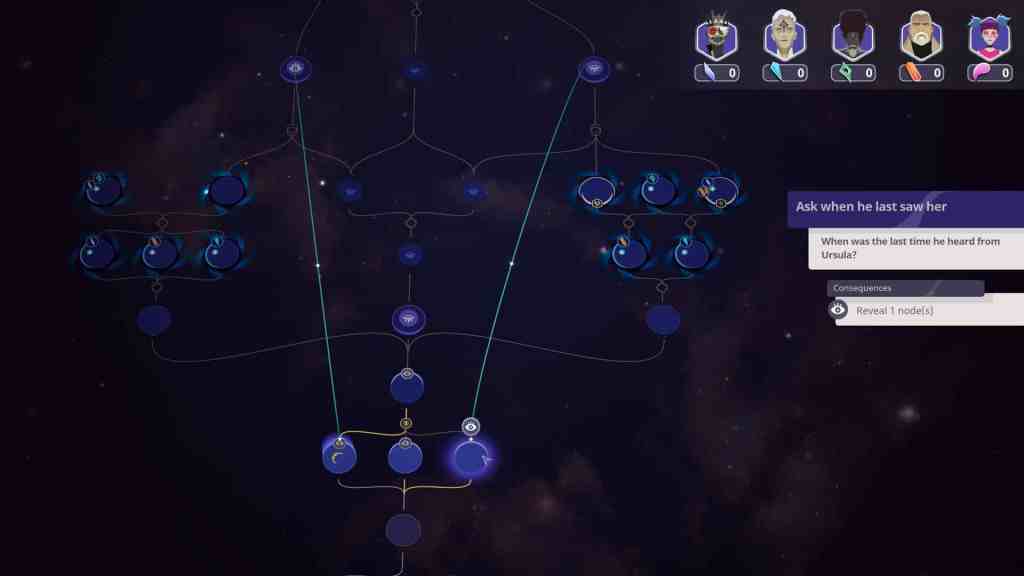
This takes some of the guesswork out of the choice-based formula, but don’t be tricked into thinking it’ll make it any less difficult – quite the contrary. Nothing is as clear-cut as it seems, because when you cast your eye into the future, what you lack is perspective.
The Aspirations try to influence your every move, and you’ll unlock crystals based on who you side with – these are used as currency to unlock more nodes and direct the timeline. Listening to their council is equally helpful and confusing; a constant battle, being pulled in multiple directions. They’re all flawed individuals – neither good nor evil, but bound by their single-mindedness. Power wants you to take control without thought or hesitation, Bond wants you to value community and Chaos … is impossible to avoid.
If your preference is to always choose the virtuous path in games, you will find this system challenging. Even if you think you’ve chosen all the best options and all the loose ends are tied, you’ll soon discover that even the smallest choice can have unexpected consequences behind a hidden node or in a later chapter. There’s no such thing as a perfect run in Harmony.
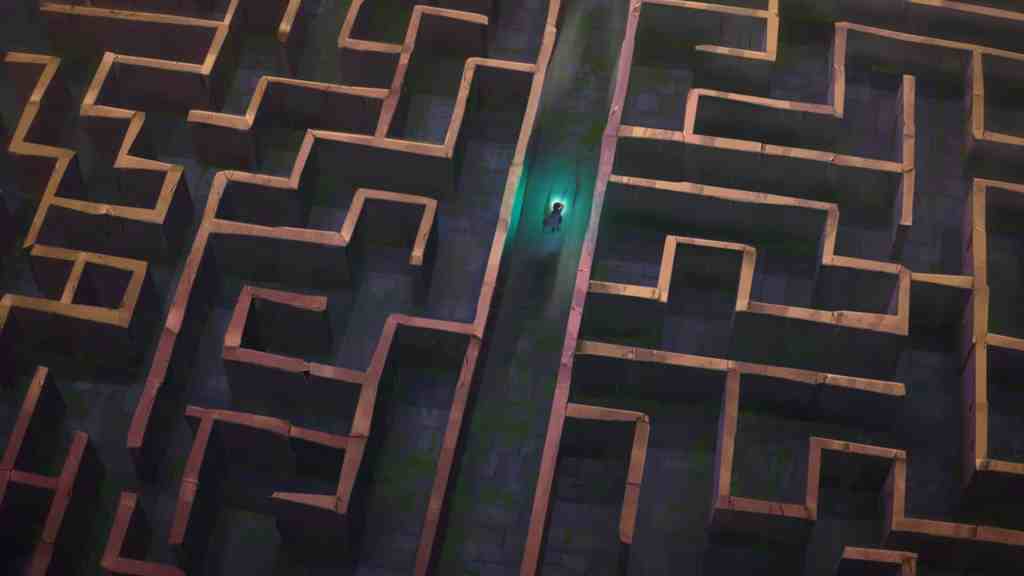
It becomes a game of strategy where you can spend extensive time just studying the Augural, calculating the best path to collect enough crystals for your desired outcome. If you make decisions flippantly, the numbers won’t add up. Much like real life, every choice made cuts you off from one of many alternatives. It’s painful to ponder where the other path might have led, or worse still, know that you’re currently on the wrong one.
Harmony falters a little in the later stages of the narrative, after the climax hits and the story slows to a crawl. The events of the first couple of acts take place over a matter of days, while the final few take months. It results in a lot of work on the Augural, followed by slabs of text summarising the results. I was disappointed to find that the narrative had zoomed out so much – it felt like I lost my place in the heart of the action.
Regardless, Harmony: The Fall of Reverie near-expertly combines rich storytelling and detailed decision making to create an epic tale of worlds colliding. Behind the beautiful exterior, there’s a fully actualised universe with exciting mechanics, compelling story arcs and characters truly worthy of your emotional investment. If you put in the work, it’s an experience unlike any other.
Four Stars: ★★★★
Harmony: The Fall of Reverie
Platforms: PC, Nintendo Switch, PlayStation 5, Xbox Series X/S
Developer: DON’T NOD Entertainment
Publisher: DON’T NOD Entertainment
Release Date: 8 June 2023
The PC version of Harmony: The Fall of Reverie was provided and played for the purposes of this review.

